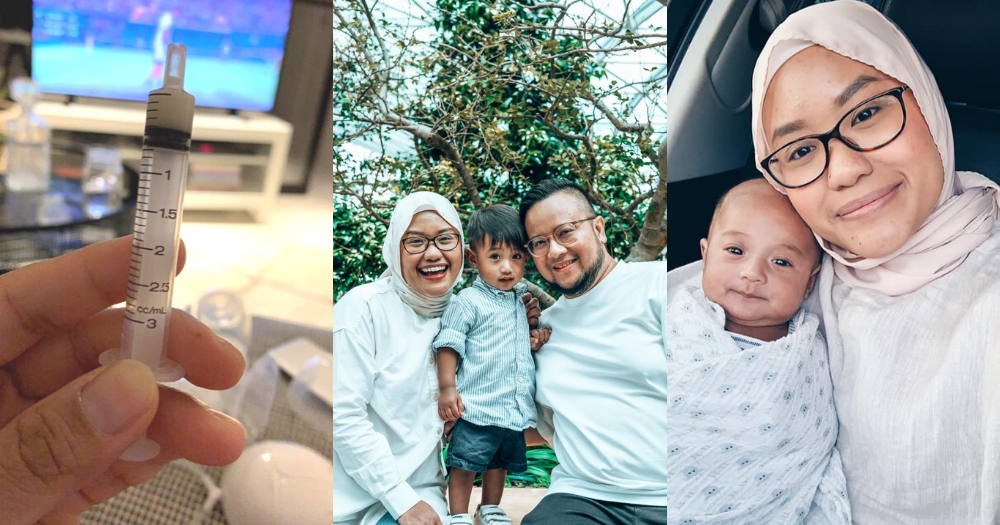When we met Nursyazanna Syaira Suhimi for coffee on an otherwise uneventful afternoon, we could tell that it was going to be a breeze talking to her.
With a parenting book in hand, Syaira entered the cafe and warmly greeted not just us, but the cafe workers who know her as a regular patron as well (which got us a plate of tater tots, on the house).
For those who are not familiar with 34-year-old Syaira, she is the co-owner and head baker of popular dessert shop Fluff Bakery.
Her husband, Ashraf Alami, is the other co-owner.
Together, the couple is raising two-year-old Noah Ashraf.
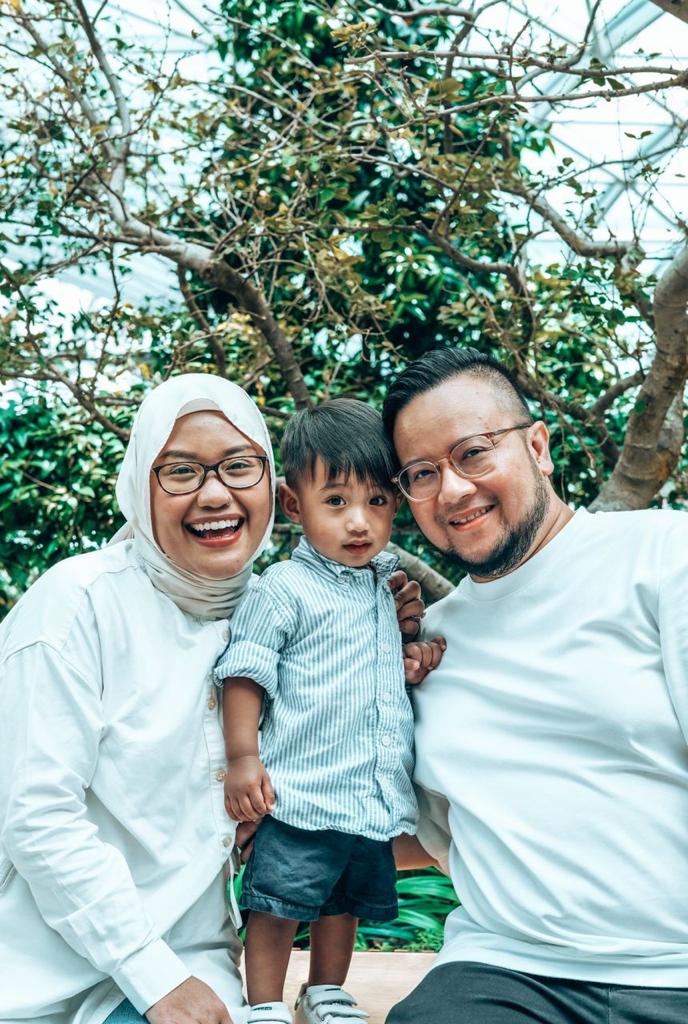 Photo courtesy of Nursyazanna Syaira.
Photo courtesy of Nursyazanna Syaira.
While she may seem like she’s got her life in order, her life hasn’t always been as charmed.
Diagnosed with tumour a month into marriage
You see, a month after the couple got married in 2012, Ashraf was diagnosed with a tumour in his brain.
After some rigorous treatments, he eventually got better and won the battle.
Unfortunately, it came at a cost.
As the tumour was found at the part of the brain which controls one’s hormones, this also meant that it affected the couple’s fertility.
While she was glad that her husband was given a clean bill of health, Syaira couldn’t help but feel sad occasionally, especially at a time when they were trying to start a family.
“It would be easy to say that I was happy that he’s ok. I was happy because, after the whole tumour thing, you see life from a new perspective. It really doesn’t matter as long as he’s still alive.
But in that light, I was sad, and it comes and goes in waves. Sometimes, I just feel it more than on other days like when I got my period and we’ve been trying.”
Eager to start a family, Ashraf sought treatment that required him to go through injections five times a week solely in an attempt to produce sperm.
Alas, after a couple of years, the couple found out that the treatment was unsuccessful.
"Do I not deserve to be a mother?"
At that point, having her own bundle of joy seemed almost impossible.
“After two years, we went for a check-up and there were still zero sperms. We couldn’t even do in-vitro fertilisation (IVF) and being Muslims, surrogacy isn’t an option,” Syaira said.
She recalled keeping a blue journal where she would pen her journey in trying to conceive, in hopes of gifting it to her future child.
However, at the cusp of abandoning all hope after numerous failed attempts at trying for a baby, she wrote one last heart-wrenching entry before chucking the book away for good:
“I don’t know if you are ever going to come true for me, and I don’t know if I’m ever going to be your mother so this is goodbye.”
She also sought solace in a group of friends who were also struggling to conceive:
“[On bad days], I would message my friends [who are going through the same thing] and ask why me? What the heck did I do? Do I not deserve to be a mother?”
At rock bottom, she was especially bitter and resentful towards her husband, even though it wasn't anybody's fault.
"He was the easy person to blame, right? I mean, it's common sense that it is not his fault. But as a human being, you just want to blame someone because it helps to get some pressure off your chest.
For a long time, I resented him because I thought he didn't try hard enough, he wasn't open to trying hard enough or wasn't committed to the treatments. It was a bad time for our marriage."
Despite this rather dark period in their lives, they didn’t lose the determination to have a child. Even if it meant that the child wasn't going to be their own flesh and blood.
Considering adoption
In 2017, the couple seriously considered adoption after it was initially suggested by Syaira’s mother.
“At the start, my husband was quite nonchalant about it and just wanted to entertain [my thoughts]. But after a while, we spoke about it everyday and planted it into our heads, and he got [0n] the bandwagon as well.”
In an Instagram post from July 2019, Syaira penned: "If Ashraf and I, who are not each other's flesh and blood, could love each other, why couldn't we love a child whom we are going to care for and raise as our own?"
Eventually, after weeks of research and contemplation, they decided to adopt a child through the Ministry of Social and Family Services (MSF).
Long and thorough journey
Unlike adopting independently (where an adoptive parent would have already found a child to adopt) or adopting via a commercial adoption agency (typically, international adoptions can cost over S$20,000), the MSF route can take longer due to the thorough administrative and legal processes.
One of these steps includes a compulsory pre-adoption briefing (PAB), which Syaira was initially “very excited” to go to.
A PAB is a one-off 2.5-hour session conducted by accredited agencies appointed by MSF, where potential adoptive parents can:
- Learn about the adoption process and whether one is eligible to adopt
- Understand one’s rights and responsibilities as an adoptive parent
- Understand the needs of an adoptive child
- Find out where one can get support in their parenting journey
Yet, Syaira and her husband ended the briefing feeling disheartened, as it didn’t meet their expectations and they were trying very hard not to doze off in class.
She explained,
“I wanted to know more about the process, like where and when I should apply for it and what are the proper ways to go through, but I think more than half the class was telling you how to parent… But that [depends on] individual parenting styles, you cannot dictate how our parenting styles are going to be like.”
And then there’s the Home Study Report (HSR), which is a comprehensive investigation that helps the ministry to assess whether they are eligible and ready to adopt a child.
The HSR currently costs S$1,750 and is valid for two years for a single adoption.
Syaira remembered doing the HSR interview separately from her husband, where they were asked a variety of personal questions, including how she was parented, if there’s any history of drug abuse in the family, and what’s the state of their marriage.
And then there were the numerous character references and the multiple forms to fill and scan to submit via the MSF portal.
It took the couple slightly more than a month before they completed and passed their HSR.
While the process may seem draining for some, she thought that the HSR helped them to reassess their marriage and gave them the opportunity to really think about what kind of parents they wanted to become.
“It gave us the time and space to be more prepared, I would say, than normal couples. They asked really tough questions and we were forced to discuss it, there was no trying to hide or deal with it when it comes.”
 Photo courtesy of Nursyazanna Syaira.
Photo courtesy of Nursyazanna Syaira.
After these processes were sorted, all they could do was wait.
A pleasant surprise
And it seems to be true when they say good things happen when you least expect it.
Syaira distinctly recalled that it was around 2pm in June 2019 when they were called to the social services organisation’s office, thinking that they had to tie some loose ends to complete the adoption application process.
Some answered questions and signed forms later, the social worker asked the question that would eventually change their lives forever: “We have a baby for discharge at 5pm today. Do you want to pick it up from the hospital?”
While Syaira — who had openly expressed her longing to be a mother for the longest time — was ready to say yes, it was a picture of the serene two-day-old newborn baby boy that sealed the deal for the couple.
https://www.instagram.com/p/B03bFyPhJ6y/
But there was a little hiccup: They weren’t prepared for the baby at all.
Their house wasn’t baby proofed and they didn’t have anything for the baby, not even a bottle.
With only three hours till they had to go get the baby, the couple went to the nearest Mothercare outlet to purchase the essentials.
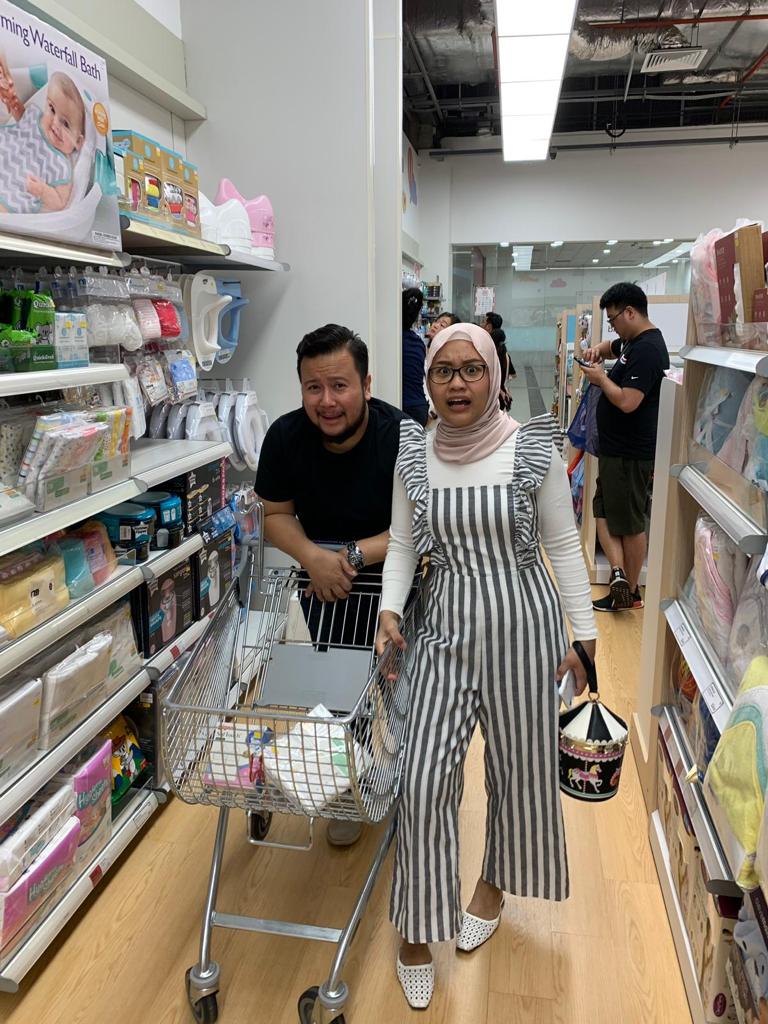 Shopping for baby supplies just hours before bring Noah home. Photo courtesy of Nursyazanna Syaira.
Shopping for baby supplies just hours before bring Noah home. Photo courtesy of Nursyazanna Syaira.
Luckily for them, they also received some hand-me-downs from their close friends and family.
Completing the family
With her husband and mother by her side and a car full of baby supplies, Syaira went down to the hospital to meet the baby.
They originally wanted a semi-open adoption, which meant that contact is exchanged between the birth family and the adoptive family but without any identifying information out of respect for everyone’s privacy.
However, the birth family requested a closed adoption where the records of the birth parents are kept confidential.
Taking the baby into her arms wasn’t like a beautiful and moving reunion between mother and child often depicted in Hallmark movies.
In fact, as she was so occupied with signing and receiving her forms, she didn’t have the time to be emotional, nor did she realise that she achieved a dream that she once considered unattainable: to be a mother to baby Noah, named after one of the prophets in Islam.
It was only when she was alone in the car, with Noah sleeping soundly in her arms, did she realise that they are now finally a family of three.
“My husband went out to get coffee and I was sitting in the car with the baby and I was just like… My god, it’s finally happening!
It’s the quiet moments when we were alone with the baby that we had the time to process what just happened.”
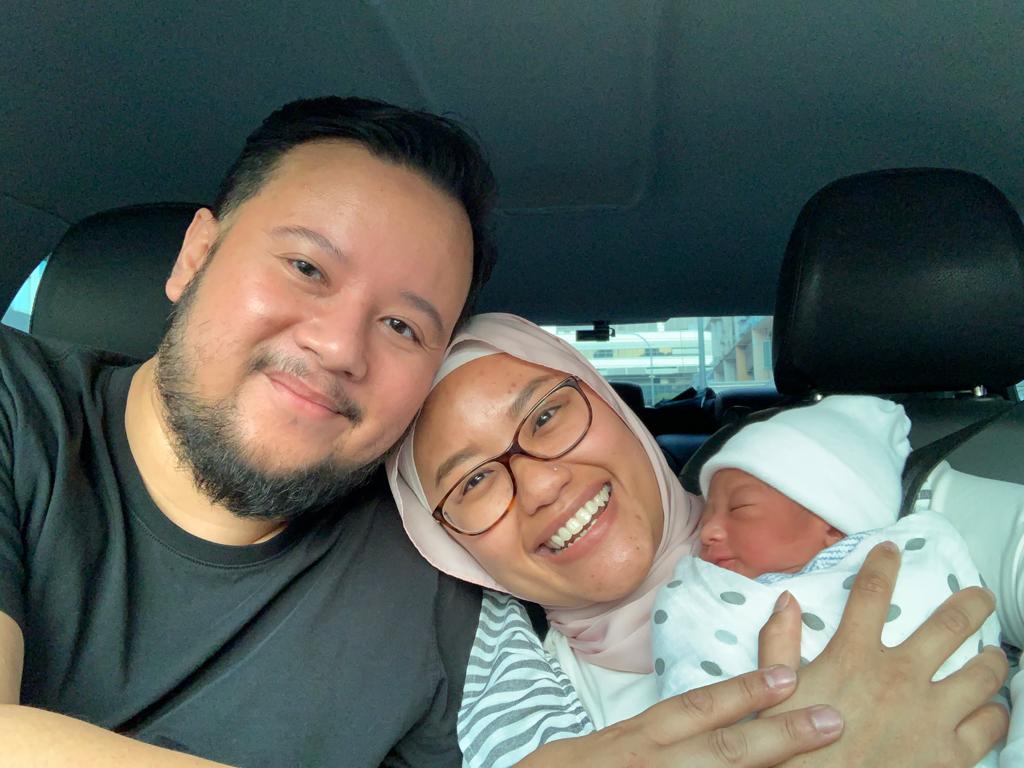 First family photo. Photo courtesy of Nursyazanna Syaira.
First family photo. Photo courtesy of Nursyazanna Syaira.
Advice for potential adoptive parents
While her journey may seem smooth, Syaira recognised the commitment of raising a child.
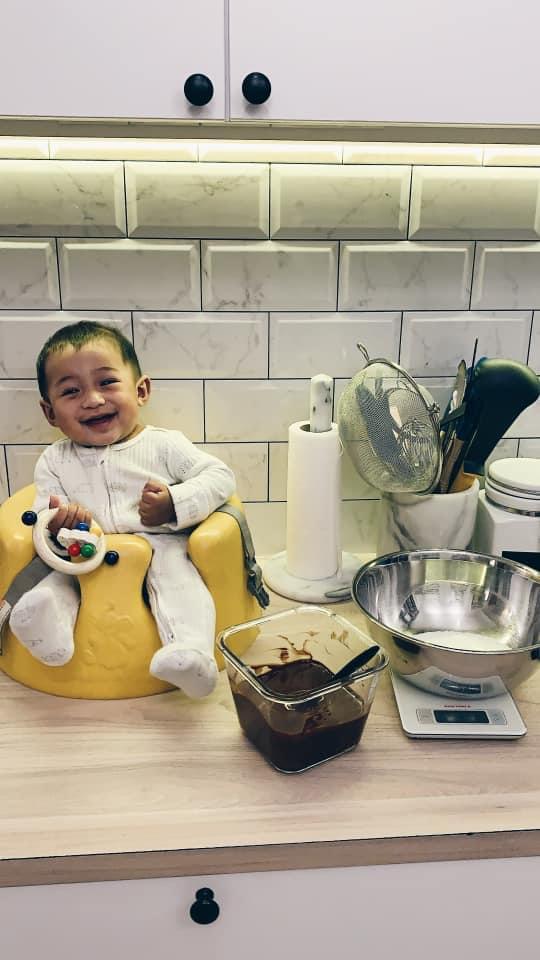 Photo courtesy of Nursyazanna Syaira.
Photo courtesy of Nursyazanna Syaira.
If you've heard the idea that children can fill the void in any marriage or solve any marital problems, well, it is a notion that she disagrees with.
Instead, she believes it is imperative to “have a deep talk with your spouse about what it means to be parents and what you [both] want."
Unlike pregnancy that can sometimes be unplanned, adoption is a conscious choice that allows the couple to discuss beforehand if they are financially and emotionally ready for the commitment.
A tip she shared was to read up on the relevant topics as much as possible before making the decision to start the adoption journey.
She emphasised the importance of being financially ready, not just for raising the child, but also covering the costs of the pre-adoption procedures.
Milk kinship
An added challenge that Syaira faced was to induce lactation for her baby to foster milk kinship and become her mahram.
In Islam, a mahram is a member of one's family:
- with whom marriage is prohibited;
- from whom concealment of the body with hijab is not obligatory;
- and with whom, if he is an adult male, she may be escorted during a journey.
For our benefit, Syaira patiently explained the implications of breastfeeding the adopted child in her religion.
The adoptive parent(s) and child are considered each other’s mahram, but this does not apply to extended family members such as the adoptive grandparents.
However, breastfeeding an adopted child a certain number of times before he turns two would allow him to become a "milk child", and thus be considered as mahram.
Hence, she chose to do this so that Noah can interact with the extended family with ease.
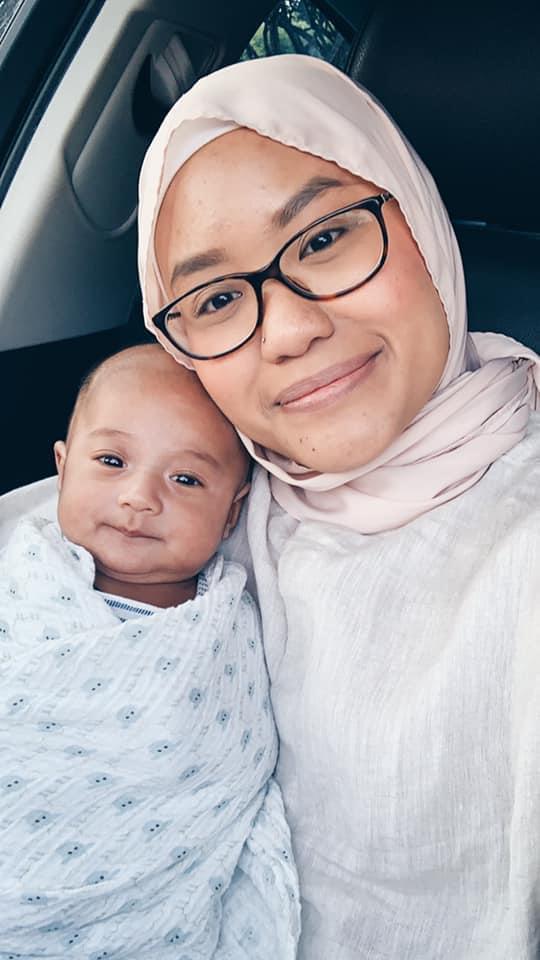 Photo courtesy of Nursyazanna Syaira.
Photo courtesy of Nursyazanna Syaira.
Induced lactation
The idea of breastfeeding an adopted child was not foreign to Syaira, whose Malaysian relative, a doctor, had breastfed her own adopted children.
Initially, she had planned to induce lactation, pump the milk and store it in the freezer prior to the baby’s arrival.
However, everything happened too quickly for her and it became “a last minute thing” that she had to organise with her doctor on the same day when her baby arrived.
Syaira was given two medications — a birth control pill and a hormone pill.
One is taken first to trick the body into believing it is pregnant, while the other is taken after a certain number of days to trick it into believing it has given birth.
In addition to the oral medications, Syaira was advised by her lactation nurse to pump every three hours in order to stimulate breastfeeding and encourage the production of breast milk.
To say it was time-consuming is an understatement.
On top of the high frequency of pumping, she also had to wash and sterilise the equipment and before she knew it, it was time for another pumping session.
As Syaira need not remain in confinement, she was out and about with her baby, which added to the inconvenience of adhering to the pumping schedule.
Groaning as she recalled the process, she said,
"When you pump, you can't do anything. You just have to be there, like a cow. When the baby cries, I have to call for my husband. You can't do a lot of things so it was very... troublesome."
She revealed that she only pumped four or five times a day and was surprised when the milk came through within a week.
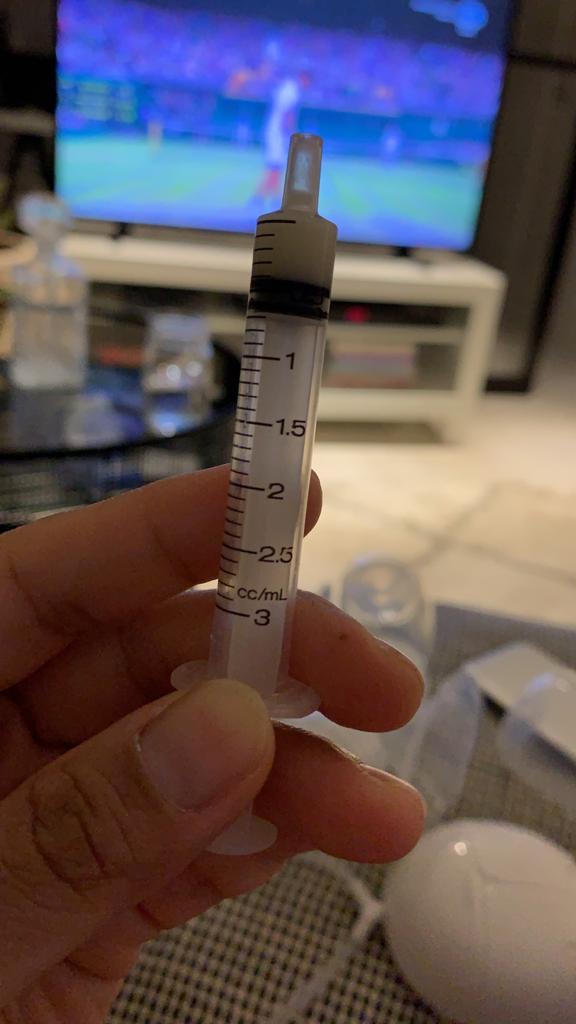 The first drops of milk. Photo courtesy of Nursyazanna Syaira.
The first drops of milk. Photo courtesy of Nursyazanna Syaira.
After over a week of “pumping, medication and hormones,” Syaira was delighted to see the colostrum — something she once thought was impossible.
Colostrum is the nutrient-rich first form of milk typically produced immediately after giving birth.
Now, most breastfeeding mothers would wince at the thought of cracked nipples, breast engorgement, and the dreaded plugged milk ducts.
But Syaira considered herself to be “very lucky”. The ease of it surprised her as “it was [only] a bit painful” and she only experienced mild engorgement without any painful or serious side-effects.
While Syaira experienced milk letdown within a short period of time, it was in low supply.
Compared to the average 100ml of milk per side, her personal average was 12ml.
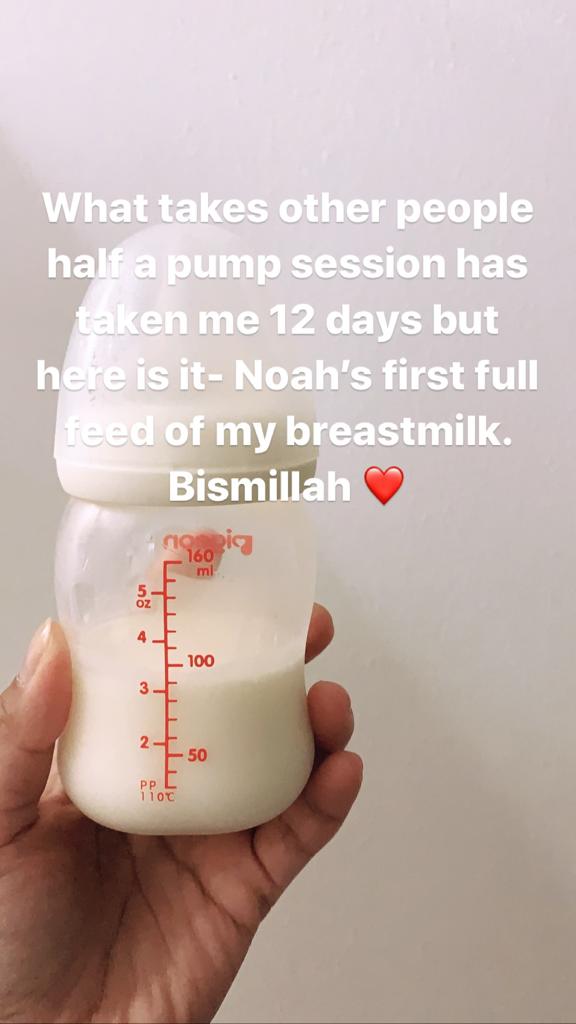 Photo courtesy of Nursyazanna Syaira.
Photo courtesy of Nursyazanna Syaira.
Nonetheless, with the encouragement of her supportive husband and a milk-hungry infant, she froze the milk bit by bit and she managed to complete the feeds after over two months to achieve her goal.
The big reveal
Syaira shared with us that she plans to tackle the adoption stigmas and microaggressions head-on and gradually educate Noah about his adoption history when he is young.
In her extensive research since she embarked on the adoption journey, the well-read mother has done a lot of research that predominantly advocates telling the child early.
This has been proven and reviewed by many experts on the matter, including a board-certified pediatric psychologist.
She learnt from her research that this practice can help the child to be “secure and confident” in their identity as an adopted child rather than develop negative feelings towards their adoption history.
Her first-hand experiences with people who grapple with identity crises upon finding out about their adoption history that causes them to question who they believed they were also further encouraged her to be upfront with Noah about his adoption at a young age.
“It’s about building that relationship with the child from young,” she said, referring to her and her spouse as Noah’s “forever family”.
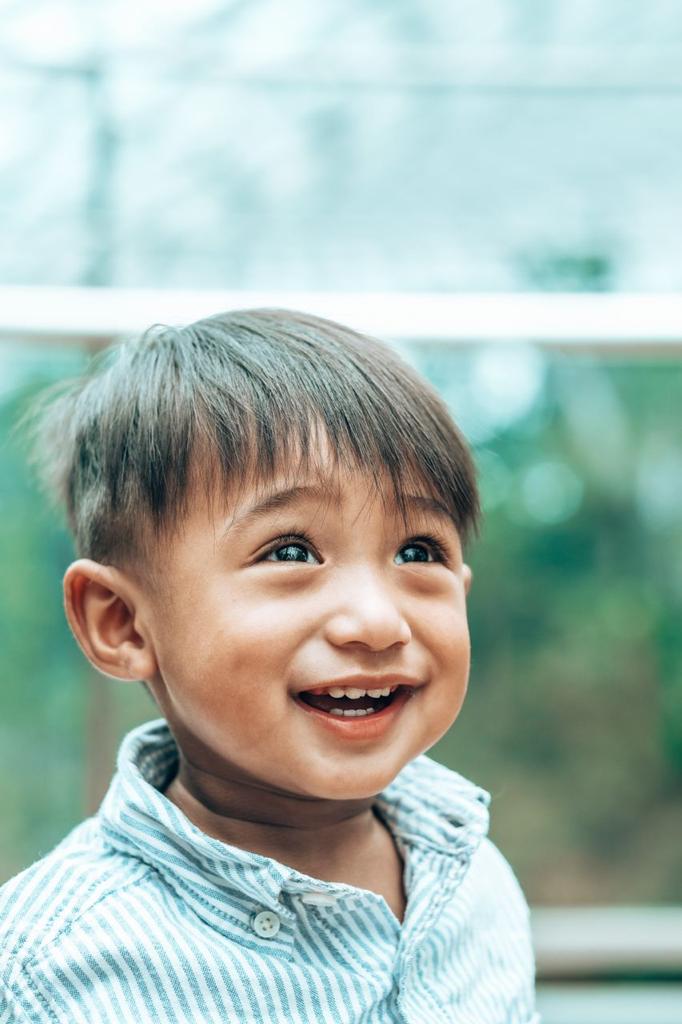 Photo courtesy of Nursyazanna Syaira.
Photo courtesy of Nursyazanna Syaira.
Thus, she believes in “complete transparency”, and that it is easier to start young when Noah can ask questions.
Her plan includes gradually facilitating age-appropriate conversations with him about his adoption with various resources like books and movies to help him understand the concepts of adoption and family.
“I don't think I can be so selfish to keep him from [his birth family] or them from him if they want to be reunited,” Syaira said.
“I feel that everything should be decided by him... It's not about what I want. If he wants to meet them, I'll make an effort to reach out to them."
Parenting style
Among the various parenting styles, Syaira subscribes to the more “respectful, gentle” parenting style as she does not believe in hitting the child.
She candidly shared a challenge she faced when Noah was going through a "hitting" phase, which he demonstrated around family members and his cousins, but not at school.
Being the studious mother that she is, she turned to podcasts and parenting books for solutions, which advised against making it a big deal and stated that children at that age typically know how to be gentle and that the hitting stems from impulse.
But it was during a staycation where she witnessed a father handling a similar problem in a way that deeply inspired her.
According to Syaira, the man was having a chat with his two children who were walking beside him when one of them raised a hand and tried to hit the other. He simply caught the child’s hand mid-air to stop the behaviour without making a fuss and went on with their lives.
“That’s how I want to be, he’s so cool!” Syaira exclaimed, proceeding to say she hoped to become the “cool, calm, collected” parent who is “confident in what they do".
She did admit that it is easier said than done because many parents may find it instinctive to call the children out in an agitated manner in such situations, especially when a lot of us in Asian households were brought up that way.
"Parenting is actually unlearning yourself and what you have been taught to become the parent that you want to be, and regulating yourself is the most difficult thing you have to do as a parent."
Husband as a pillar of strength
When we asked her who her biggest pillar of strength was, Syaira named her husband without any hesitation.
It goes without saying that it takes a village to raise a child, but as a modern couple who lives on their own, Syaira and Ashraf are each other's main support system.
While the workload cannot be evenly split between the couple, they know that they depend on each other for support when the going gets tough.
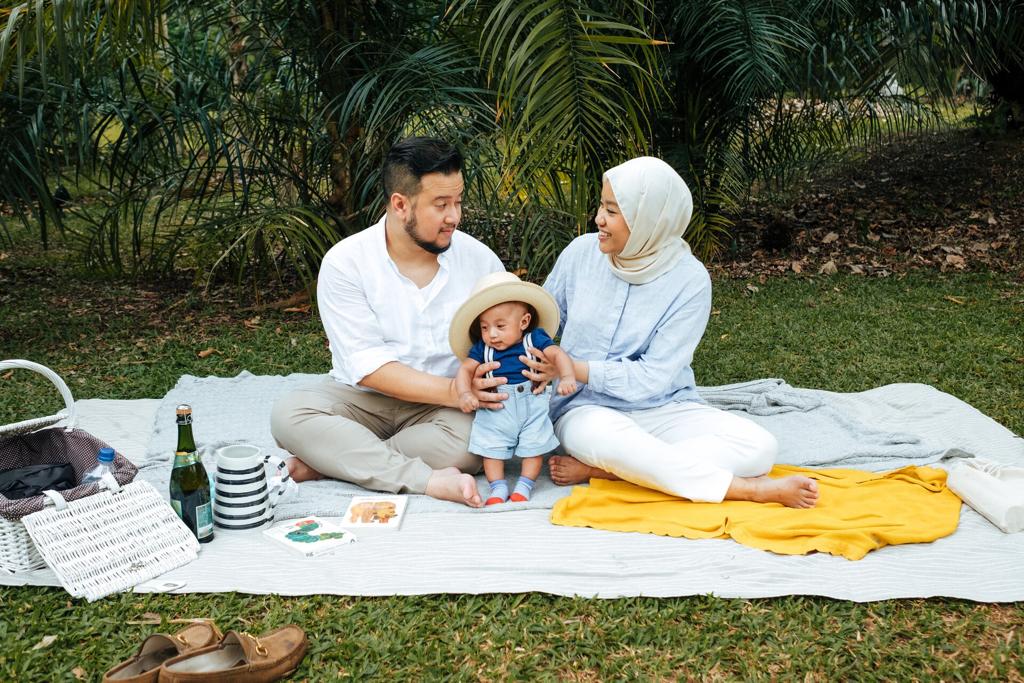 Photo courtesy of Nursyazanna Syaira.
Photo courtesy of Nursyazanna Syaira.
She chuckled as she said, "My husband and I always say that parenting is basically one person losing it at a time so the baby doesn't die. You can't lose it together!"
Parenting is an ongoing journey
Despite the sheer amount of research Syaira has done prior to adopting Noah, the first-time mother remains humble and realistic when navigating parenthood.
She identified self-regulation as the biggest challenge for her since the start of her parenting journey.
Flaring up at your child is an easy way to express your displeasure, but can cause negative emotions between parent and child, resulting in adverse effects on the child in the long run.
“If we as grown adults cannot regulate our own emotions, what makes you think a toddler who is two years old can do it?” Syaira remarked.
However, she acknowledged that it is tough to perpetually keep one’s temper in check and still figure out proper ways to appease the crying child, especially after a long day at work.
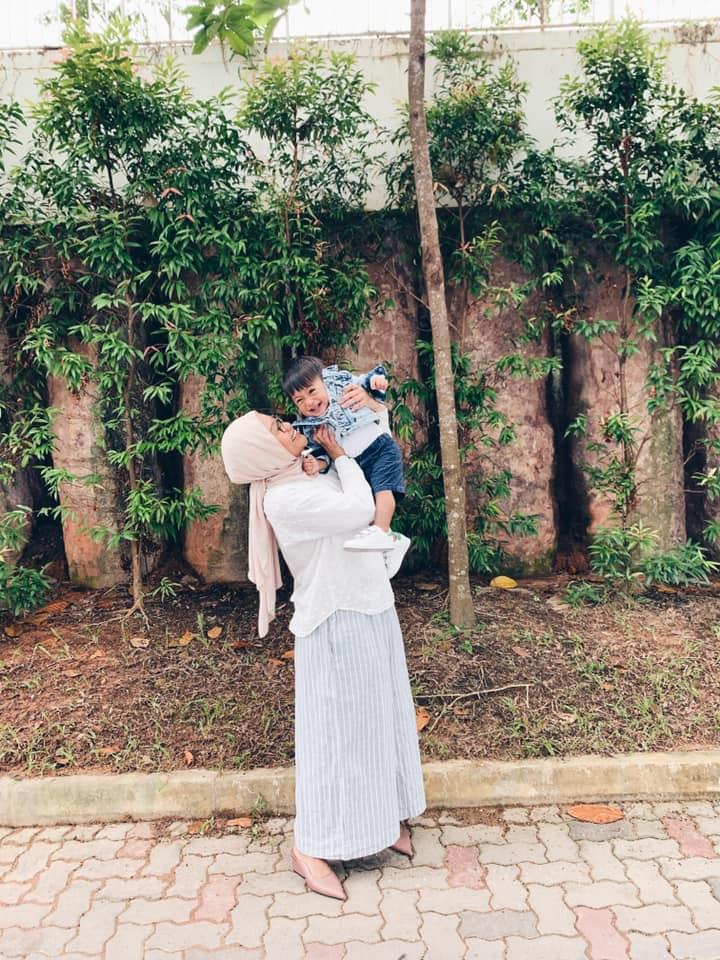 Photo courtesy of Nursyazanna Syaira.
Photo courtesy of Nursyazanna Syaira.
Nonetheless, Syaira remains uncertain if she is parenting the right way and noted that it is difficult to tell until Noah becomes much older.
But as we saw her gush, describing her beloved Noah as a cheeky, bubbly and social butterfly (a trait that he probably inherited from her), we're almost certain that she's on the right path.
“[Motherhood] has not turned out exactly how I expected but it is seriously the best thing... that has ever happened to me... It’s so much harder than I thought it would be but it’s so much more gratifying as well.”
Top image courtesy of Nursyazanna Syaira Suhimi.
If you like what you read, follow us on Facebook, Instagram, Twitter and Telegram to get the latest updates.
